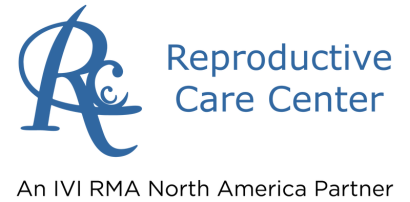Infertility affects individuals across all races, ethnicities, sexual orientations, genders, socioeconomic statuses, and marital statuses. At Reproductive Care Center (RCC), we are committed to providing a welcoming and inclusive space where patients and specialists work together to achieve the shared goal of building families. Witnessing the joy of successful outcomes fuels our dedication to this mission.
Once the causes of infertility are diagnosed, our infertility specialists tailor a treatment plan to give the best chances of success for a pregnancy. We prioritize starting with the most cost-effective and least invasive options, progressing to more advanced treatments only if necessary.
We highly recommend pursuing an evaluation by an infertility specialist sooner rather than later vs consulting an OB/Gyn physician for infertility. Valuable time and opportunity for successful treatment can be lost if there is a delay in seeking assistance by a certified fertility specialist. There is often a presumption that infertility treatment will be very expensive. Frequently, we are able to help couples conceive without the need for more costly treatment.
In addition to immediate family-building treatments, RCC also offers egg and sperm freezing (cryopreservation) for individuals and couples seeking to preserve their fertility. As age impacts gamete quality, cryopreservation can provide an option for future biological parenting.
Inclusive Care for All
Our clinic takes pride in offering inclusive and comprehensive fertility care for everyone. Whether you are part of a straight couple, an LGBTQ+ relationship, or single, our specialists are here to guide and support you through your unique journey to parenthood. With cutting-edge technology, compassionate care, and personalized treatment plans, we’re committed to helping you build the family of your dreams.
Evaluation and Treatment
Our evaluation for straight couples includes a detailed review of medical history and specialized testing for both partners. The female partner undergoes hormone testing, genetic screening, and imaging studies such as ultrasounds, HSG (hysterosalpingogram), or SSG (saline infused sonogram) to assess reproductive anatomy. The male partner receives a semen analysis to evaluate sperm motility, volume, and concentration.
Based on these results, we create a personalized treatment plan that may include timed intercourse, ovulation induction, intrauterine insemination (IUI), or advanced procedures like in vitro fertilization (IVF). Donor services, such as donor sperm, eggs, or embryos, are also available if needed.
Additionally, RCC offers egg and sperm freezing for couples wishing to preserve their fertility for future family-building.
Evaluation and Treatment
We begin with a comprehensive assessment that includes hormone testing, genetic screening, and imaging studies to evaluate uterine and ovarian health.
For women pursuing immediate parenthood, options like IUI or IVF with donor sperm are available. RCC can connect patients with reputable sperm banks and provide guidance throughout the process.
For those interested in preserving their fertility, egg freezing offers the flexibility to delay childbearing while maintaining the opportunity for a biological connection. These frozen eggs can then be used in IVF cycles later in life with either partner or donor sperm. Early consultations ensure timely interventions and maximize the chance of success.
Evaluation and Treatment
The journey begins with a semen analysis to assess sperm health, including motility, volume, and concentration.
For those pursuing parenthood, our specialists provide guidance on selecting an egg donor and connecting with reputable organizations to find a gestational carrier. Fertilization of donor eggs occurs through IVF, with embryos then transferred to the carrier’s uterus. Referrals to legal professionals help navigate the complexities of gestational carrier agreements, ensuring a smooth and secure journey to parenthood.
RCC also offers sperm freezing, allowing individuals to preserve their fertility for the future. As part of the Freezing Center Network, we ensure these services are accessible and affordable.
Evaluation and Treatment
For female couples, the partner planning to carry the pregnancy undergoes a thorough evaluation, including medical history review, hormone testing, genetic screening, and imaging studies. If one partner donates eggs while the other carries the pregnancy, the donating partner also undergoes a comprehensive medical evaluation.
Treatment options include intrauterine insemination (IUI) or in vitro fertilization (IVF) using donor sperm. Many couples opt for Partner Assisted Reproduction (PAR), where one partner provides the eggs, and the other carries the pregnancy. RCC offers referrals to reputable sperm banks and legal support to navigate parentage rights.
Egg freezing (oocyte cryopreservation) is also available, allowing couples to preserve their fertility for future family planning.
Evaluation and Treatment
The first step involves semen analysis for one or both partners to determine sperm quality.
After selecting an egg donor, the donor eggs are fertilized with sperm through IVF. The resulting embryos are then transferred to a gestational carrier’s uterus. RCC helps couples with referrals to reputable organizations for securing a gestational carrier and navigating the legal requirements of the process.
We also offer sperm freezing (cryopreservation), providing flexibility for future family-building. As part of the Freezing Center Network, we ensure affordability and accessibility for this vital service.
Evaluation and Treatment
For transgender individuals, fertility preservation is often an essential part of family planning. RCC offers sperm or egg freezing prior to hormone therapy or gender-affirming surgery to ensure future biological parenting options.
Depending on the needs of the individual or couple, treatments may include IUI or IVF using preserved gametes, donor eggs, donor sperm, or a gestational carrier. Partner Assisted Reproduction (PAR) is also available, where one partner provides eggs, and the other carries the pregnancy.
Throughout this journey, we provide compassionate care, addressing both the physical and emotional aspects of treatment. Referrals to legal resources and support networks ensure a comprehensive approach to building families.
Donor Options

A subsidiary of the Genetics and IVF Institute along with Fairfax Cryobank, one of the nation’s largest sperm banks. Fairfax Cryobank was born out of a successful model for gamete (egg, sperm) cryopreservation (freezing) and shipping. Fairfax EggBank provides many options for choosing the right highly screened egg donor. Reproductive Care Center also provides frozen eggs to Fairfax Cryobank.
Become a Donor Search for Donors





